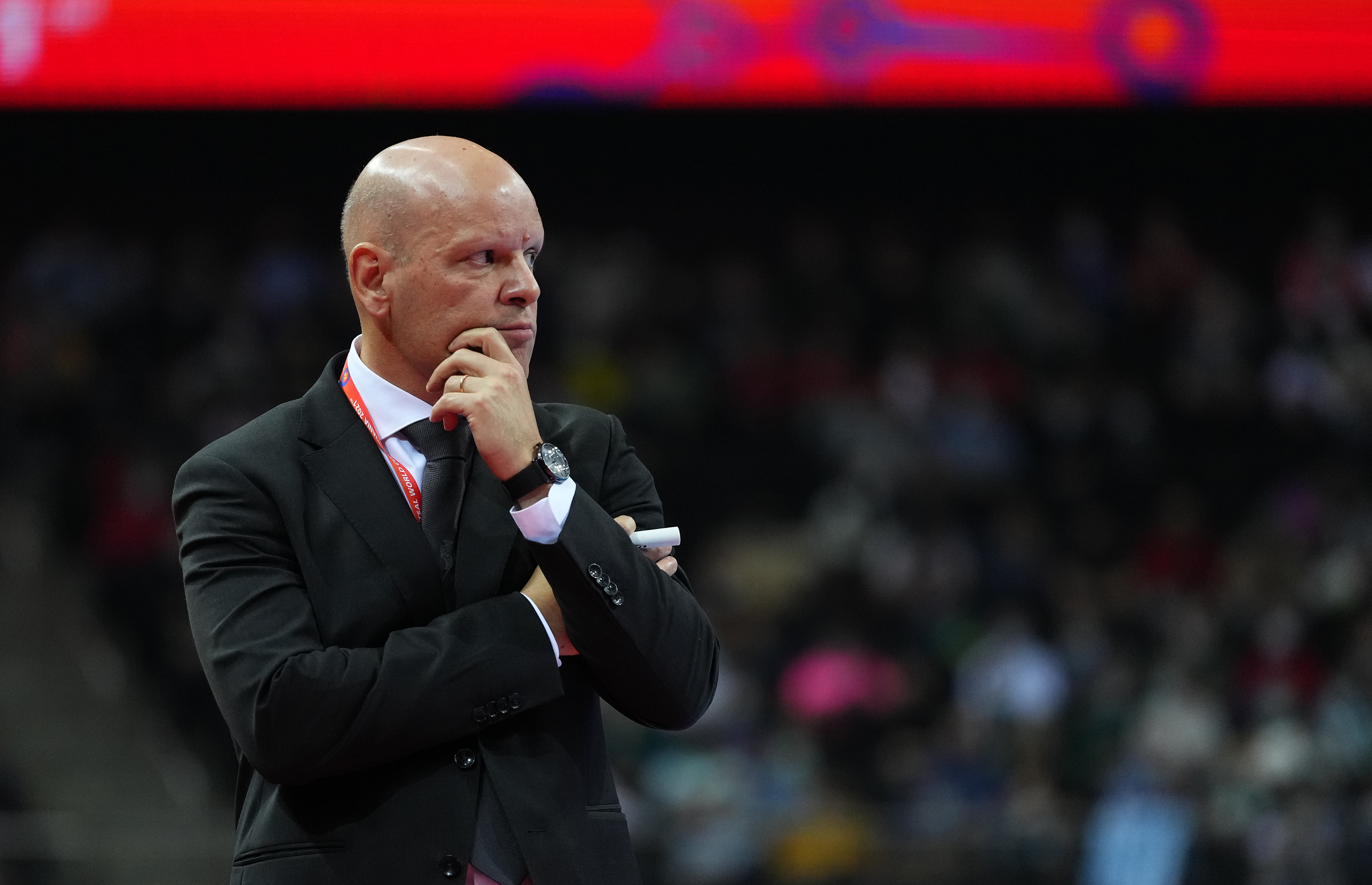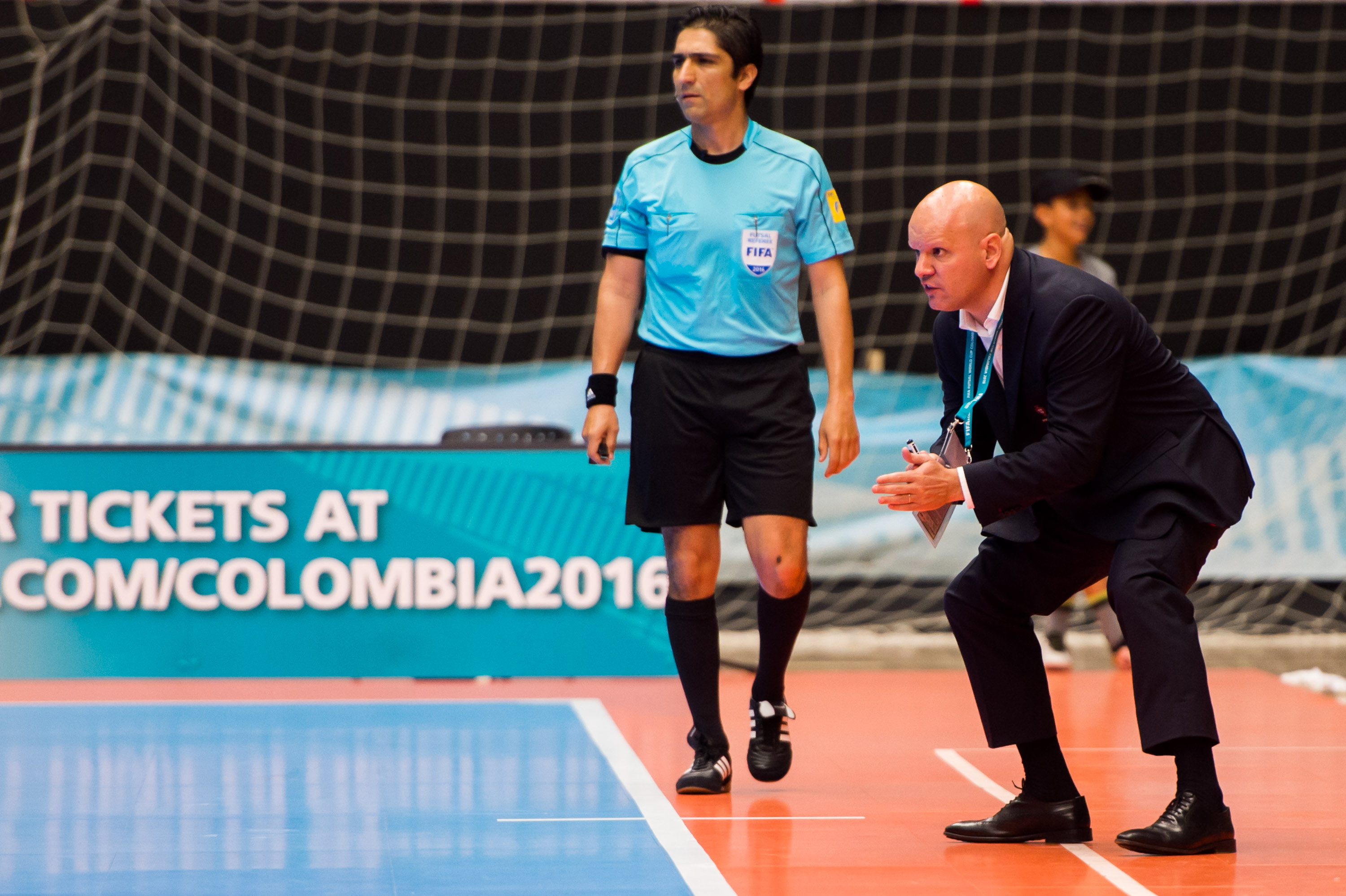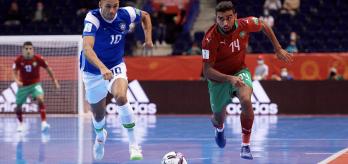Preparation
What criteria did you apply to select your final squad?
The quality of the players - the best of this era!
Can you briefly tell us about your preparations leading up to arrival in Lithuania for these finals in terms of time spent together, locations, fixtures and the physical, social, psychological, technical and tactical approaches you have taken?
All the preparation was carefully planned, as always. We started the camp on August 8th at the Rio Maior Sports Centre, a high performance training centre where we usually host our camps. We were at this location for two weeks. The players had an individual pre-camp preparation program lasting eight days. At this part of our preparations, we played two training games towards the end against Japan and Venezuela.
We moved at the end of those first two weeks to Viseu, where we stayed for another two weeks. Here we played another five preparation games against Angola, Uzbekistan, Costa Rica and Paraguay (twice). All the preparation games were played against teams that would be at the World Cup.
After these two weeks we moved to Lisbon, where we trained for two days and travelled to Lithuania for the final stages of our preparation. I emphasise that there were always breaks between each working week. Players were always able to go home after six or seven days of work. The goals are always game organisation - physical, psychology and social issues are complementary.

World Cup 2021
What was your opinion of the level of competition amongst the qualified teams here in Lithuania?
I think this was the World Cup where the highest level of futsal has ever been played. All countries have evolved immensely, the challenge is enormous in the World Cup. This evolution can be seen in the competitiveness in almost all games. From the round of 16 onwards, the unpredictability was enormous.
Which teams do you feel challenged you the most and how?
All of our rivals were candidates for the title. The requirements to beat countries like Serbia, Morocco, Paraguay, Venezuela etc are huge. Their organisation and physical capability has evolved immensely.
As a coach, what have you learned about yourself from this World Cup and what are your plans for your personal self-development and improvement in your career?
To keep learning every day. Winning this World Cup was the greatest possible experience. Now it's about continuing to learn, keeping your feet on the ground, keeping your humility and wanting to be better every day. To continue to participate in all existing development pathways and help to develop coach education at UEFA and FIFA (which we have to improve a lot!).
All countries have evolved immensely, the challenge is enormous in the World Cup. This evolution can be seen in the competitiveness in almost all games.
Upon reflection, having finished the competition as you did, what would you do differently?
Nothing!
What impressed you most and least about your opponents in Lithuania?
The very high quality! Thailand is one of the most organised teams around. The Solomon Islands, despite possessing some weaknesses, have evolved, improved and will improve again in the future. Morocco, one of the best teams in the world, champions of Africa, with fantastic players and enormous technical quality. Serbia are a very difficult opponent, with a lot of individual quality and impressive physical capacity. Spain needs no explanation – they are the most organised team in the world. Kazakhstan is the most strategic team in the world and manage the game like no other team. Finally, Argentina, former world champions and arguably the most competitive team in the world.

What was your opinion on the technical and tactical capability of your opponents at this World Cup?
As I mentioned earlier, they are all different. Tactically I think we faced the best teams in the world; Spain for their organisation, Kazakhstan with their game strategy and management, Argentina who are arguably the most competitive team in the world, and Morocco with their creativity and unpredictability.
Portugal have now firmly arrived in the top tier as real contenders at every championship, at European and the World stage, what do you put that success down to?
The strategic development plan for futsal was launched a few years ago by the Portuguese Football Federation. We tried to improve in all areas where we were weakest. We pay a lot of attention to the fundamentals, training and development, to the youth teams... basically, we tried to develop a path that would take us to the top, with the leading futsal nations as our reference.
The future
A modern Portugal team seems unthinkable without Ricardinho in years ahead, so how do you start to plan and compensate for that?
We've already started! Just look at the age of many of the players in the national team. Knowing the work we have been doing with the youth teams, the future is assured.
As arguably the best coach in the world, how do you prepare yourself for the future and dealing with the challenge of staying at the top?
To continue to be myself – with humility, always trying to work harder, more than the opponents, never putting limitations on the work, working hard and with excellence, as it is the only thing we control! Then, to continue being strongly focused on all areas of the development of portuguese futsal.




































